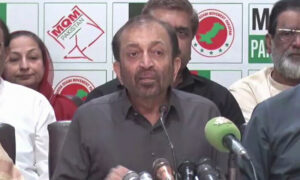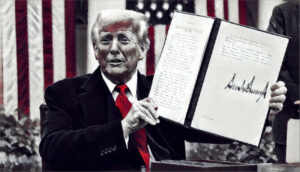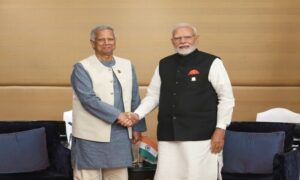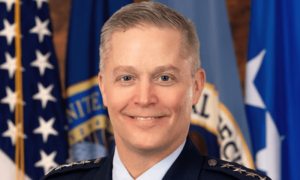Russians started voting on Friday in a three-day presidential election that is set to hand veteran leader Vladimir Putin another six-year term as the raging conflict in Ukraine spreads further into Russian territory.
In power as president or prime minister since the final day of 1999, the former KGB agent is casting the election as a show of Russians’ loyalty and support for his military assault on Ukraine, now in its third year.
Polling stations in a country spread over 11 time zones opened at 8:00 am on Friday (2000 GMT Thursday) on the Far Eastern Kamchatka peninsula and will close Sunday at 8:00 pm (1800 GMT) in Russia’s Kaliningrad exclave, wedged between EU members Poland and Lithuania.
Putin on Thursday had urged Russians to back him in the face of a “difficult period” for the country, in a pre-election message broadcast on state TV.
“We have already shown that we can be together, defending the freedom, sovereignty and security of Russia … Today it is critically important not to stray from this path,” he said.
The Kremlin leader’s confidence is riding high with his troops recently having secured their first territorial gains in Ukraine in nearly a year.
‘Farce’
With all of Putin’s major opponents dead, in prison or in exile, the outcome of the vote is not in any doubt.
Victory will allow him to stay in power until 2030, longer than any Russian leader since Catherine the Great in the eighteenth century.
Rights groups say the poll will be neither free nor fair.
Election authorities barred the few genuine opposition candidates who tried to run against him.
But those who oppose Putin still hope to spoil the procession. Those calling for voters to show up outside polling stations at midday on Sunday, the final day of voting, as a form of protest.
Moscow prosecutors warned “the organisation of and participation in these mass events are punishable.” Voting was also being staged in occupied parts of eastern Ukraine that Russia claims to have annexed.
Armed soldiers in full combat gear accompanied election officials in the eastern Donetsk region as they set up mobile voting stations on small tables in the street and on the hoods of Soviet-era cars.
Kyiv has branded the vote as a “farce” and said staging the election in eastern Ukraine and Crimea, which Russia annexed in 2014, was “illegal.” US State Department spokesman Matthew Miller also condemned the voting in Russian-held areas on Thursday.
“The United States does not and will never recognise the legitimacy or outcome of these sham elections held in sovereign Ukraine,” he said.
Moscow has promoted the vote using a red, white and blue ‘V’ logo, a symbol associated with its military offensive on Ukraine.
Putin is master of all he surveys as Russians head to polls
In a Russia at war, there is only one real candidate and only one winner: Vladimir Putin.
As Russians cast their ballots in the March 15-17 election, the 71-year-old former KGB lieutenant colonel’s popularity is high amid strong support for the war in Ukraine.
“I support Putin and, of course, I will vote for him,” said Lyudmila Petrova, 46, who was shopping for Chinese-made counterfeit New Balance sneakers in southern Moscow at one of Russia’s largest wholesale markets.
“Putin raised Russia up from its knees. And Russia will defeat the West and Ukraine. You cannot defeat Russia — ever,” Petrova said. “Have you in the West gone completely mad? What is Ukraine to do with you?”
The West views Putin as an autocrat, a war criminal, a killer and even, as US President Joe Biden said last month, a “crazy SOB” who US officials say has enslaved Russia in a corrupt dictatorship that leads to strategic ruin.
But in Russia, the war has helped Putin tighten his grip on power and boost his popularity with Russians, according to polls and interviews with senior Russian sources.
“Don’t have any doubt: this is a job for life,” said one powerful Russian who is acquainted with thinking at the top levels of the Kremlin. He spoke to Reuters on condition of anonymity to voice his views on political issues.
“Putin has no competitors — he is at a completely different level. The West made a very serious mistake by helping to unify a large part of the Russian elite and the Russian population around Putin with its sanctions and its vilification of Russia.”
Another senior Russian source said Putin’s tenure as leader was not a question of politics but of his health which seemed robust. He has no visible successor.
Putin ordered a full-scale invasion of Ukraine in February 2022 after eight years of conflict in eastern Ukraine between Kyiv’s forces on one side and pro-Russian Ukrainians and Russian proxies on the other.
Tens of thousands of soldiers have been killed and many more wounded on both sides, thousands of Ukrainian civilians are dead and Ukraine’s economy and infrastructure have suffered damage worth hundreds of billions of dollars.
The West, which says Putin is a threat well beyond the former Soviet Union, has supplied Ukraine with hundreds of billions of dollars worth of aid, weapons and top-level intelligence.
Western leaders accuse Putin of waging a brutal imperial-style war aimed at restoring Russia’s global clout.
War with the West
Putin casts the war as part of an existential battle with a declining and decadent West which he says humiliated Russia after the Berlin Wall fell in 1989 by encroaching on what Putin considers to be Moscow’s sphere of influence, including Ukraine.
That appeals to many Russians who are suspicious about the West’s politics and intentions, if not its consumer goods.
Top Kremlin officials, some sporting sweatshirts bearing the words “Putin’s Team”, speak openly of war with NATO.
Putin’s approval rating is currently 86 per cent, up from 71pc shortly before the invasion of Ukraine, according to Levada Centre, a respected Russian pollster.
Putin’s rating also jumped during the 2008 war with Georgia and the 2014 annexation of Crimea from Ukraine.
Russian television and a sophisticated social media operation project Putin as a robust patriot and deride Western leaders such as Biden as weak, foolish and deceitful.
“For many Russians, who are partly inspired by propaganda but most importantly by their own inner convictions, Russia is in an age-old struggle with the West — and what is currently happening is an episode in this struggle,” Alexei Levinson, head of sociocultural research at Levada, told Reuters.
“Those who express such feelings in our surveys consider themselves to be participants in some way in this struggle with the West. They are like soccer fans who imagine they are participants in the soccer match.”
While some within Russia’s elite are sceptical about the prosecution of the war, they have nothing to gain and much to lose by opposing the Kremlin — as the failed mutiny of Yevgeny Prigozhin, leader of the mercenary Wagner group, showed in 2023.
Prigozhin’s plane crashed on Aug 23, two months to the day since the mutiny.
Putin is leaving little to chance. Since the full-scale invasion, authorities have cracked down on any sign of dissent. Hundreds of people have been arrested for expressing their opposition and protests are banned.
State media, which dominates Russia’s airwaves, is staunchly loyal to Putin. The task of the three rival candidates is to lose. None of their approval ratings are above 6pc.
One electoral official told Boris Nadezhdin, an anti-war candidate who was barred despite garnering tens of thousands of signatures to register, that he should focus on his own failings rather than complaining.
The Kremlin’s main concern is ensuring a high turnout. Some managers at state companies have ordered employees to vote — and submit photographs of their ballot papers, six sources told Reuters. Even cash machines remind Russians to vote.
The leaders of Russia’s fragmented opposition are either abroad, in prison, silent, or dead.
Alexei Navalny, Russia’s most prominent opposition leader, died on Feb. 16 in the “Polar Wolf” Arctic penal colony, the prison service said. His widow, Yulia, has called on Russians to turn up at polling stations at noon on March 17 to show their opposition.
Navalny had characterised Putin’s Russia as a brittle criminal state run by thieves, sycophants and spies who care only about money. He had long forecast Russia could face seismic political turmoil, including revolution.
Asked if Putin was strong or weak, Leonid Volkov, one of Navalny’s top aides said: “Dinosaurs were very strong before they were extinct.”
Shortly after speaking to Reuters in Vilnius, Volkov said he was assaulted with a hammer in an attack Lithuania blamed on Russia. The Kremlin declined to comment on the incident.
From the court, where he was sentenced last month to two and a half years in prison for “discrediting the armed forces”, veteran Russian rights activist Oleg Orlov compared Putin’s Russia to something out of a Franz Kafka or Vladimir Sorokin novel.
“Those who led our country into the pit which it is now in represent the old, the decrepit, the obsolete,” Orlov said. “They have no sense of the future only false images of the past, only mirages of ‘imperial greatness’. And they are pushing Russia backwards, back into the dystopia.”
Blood and treasure
The war has cost many thousands of Russian lives, the Russian army and security services failed to execute a short victorious war and the mobilisation of 2022 spooked sections of the population.
But Western sanctions have so far failed to sink Russia’s economy, Putin has been successful in contracting hundreds of thousands of Russian soldiers, and has tilted Russia sharply towards the superpower of China.
Russia’s war-focused economy, grew 3.6pc last year and real wages rose 7.8pc, but it faces labour shortages, investment shortages and population decline, data shows.
Putin believes he has more staying power in Ukraine than the United States and he can keep Russia in the battle for many more years, according to three Russian sources.
“War is not necessarily bad for an economy in the short term,” said one Russian source who asked not to be identified. “Putin can fight on for as long as he wants.”
‘No freedom’: EU chief ‘congratulates’ Putin on win
EU chief Charles Michel sarcastically congratulated Russia’s Vladimir Putin on winning reelection against no real opposition — as voting was only just beginning.
“Would like to congratulate Vladimir Putin on his landslide victory in the elections starting today,” European Council President Michel wrote on X, formerly Twitter.
“No opposition. No freedom. No choice.” Putin looks certain to claim a new term that will extend his iron grip over Russia for another six years.











